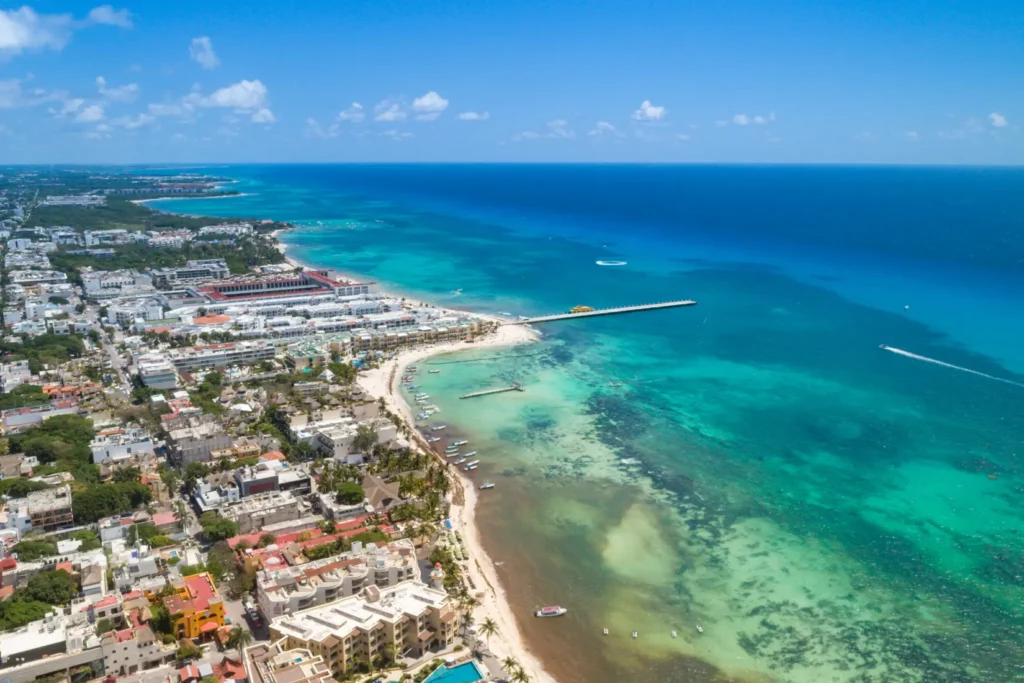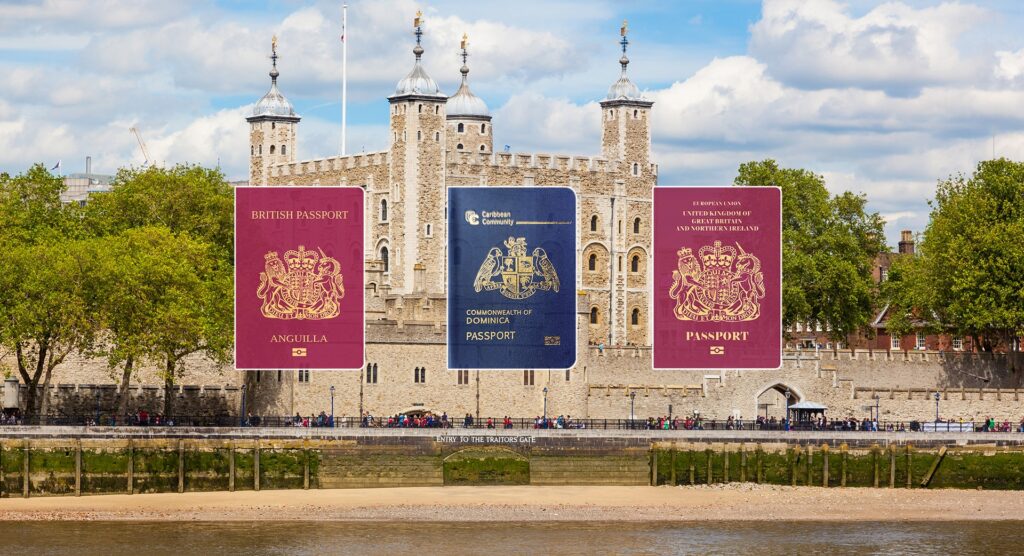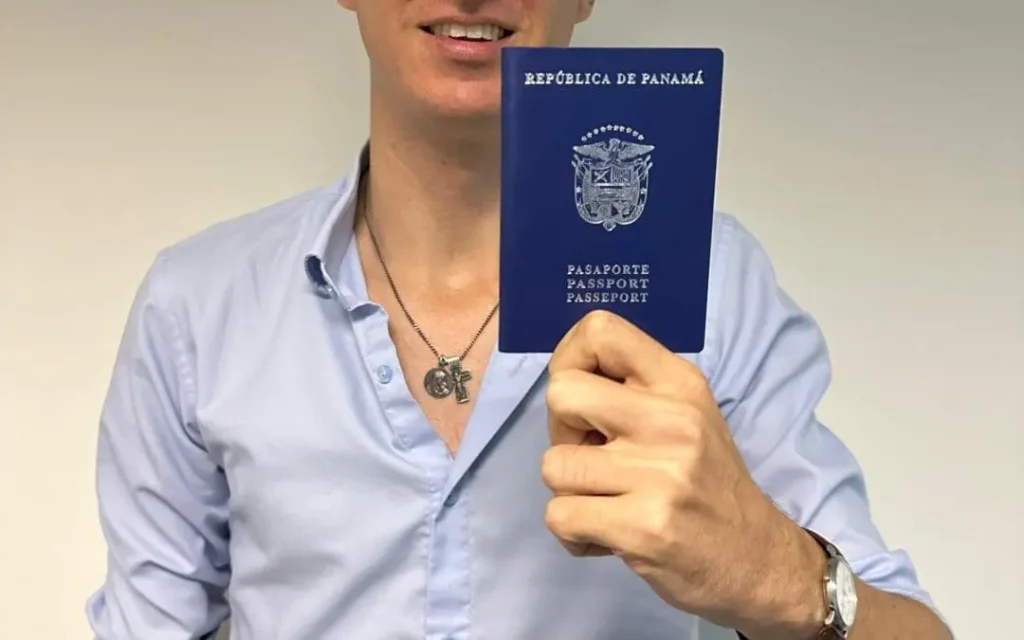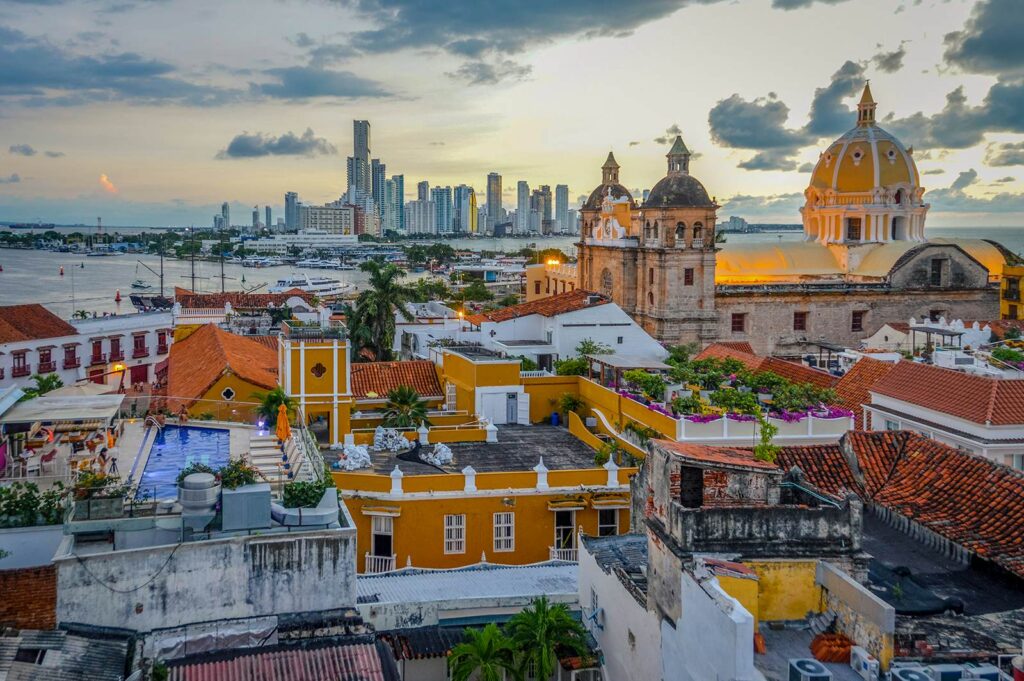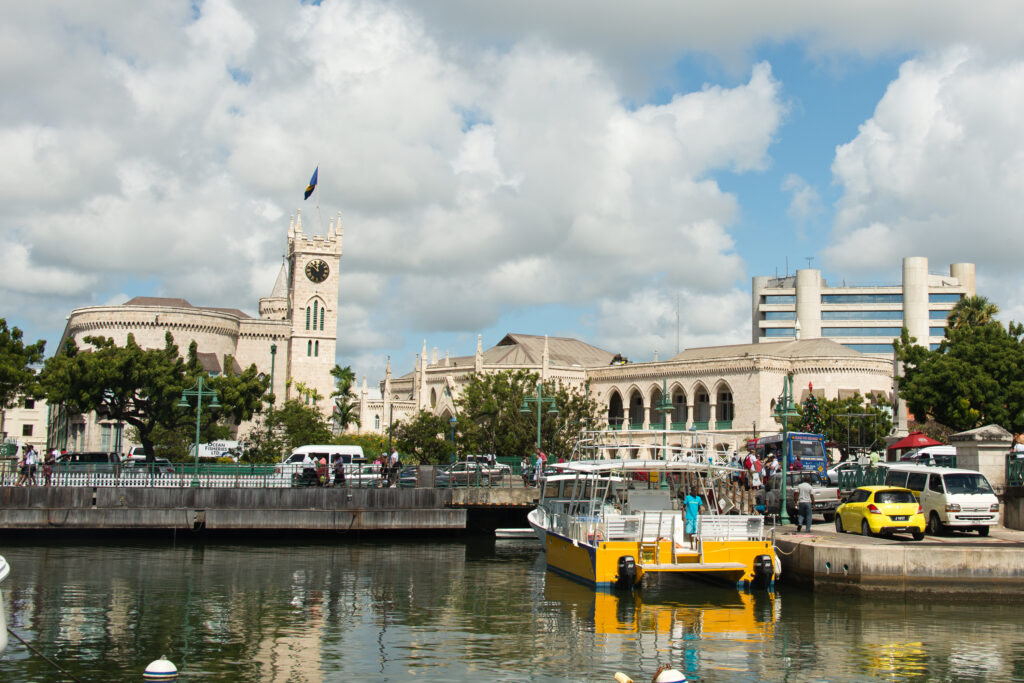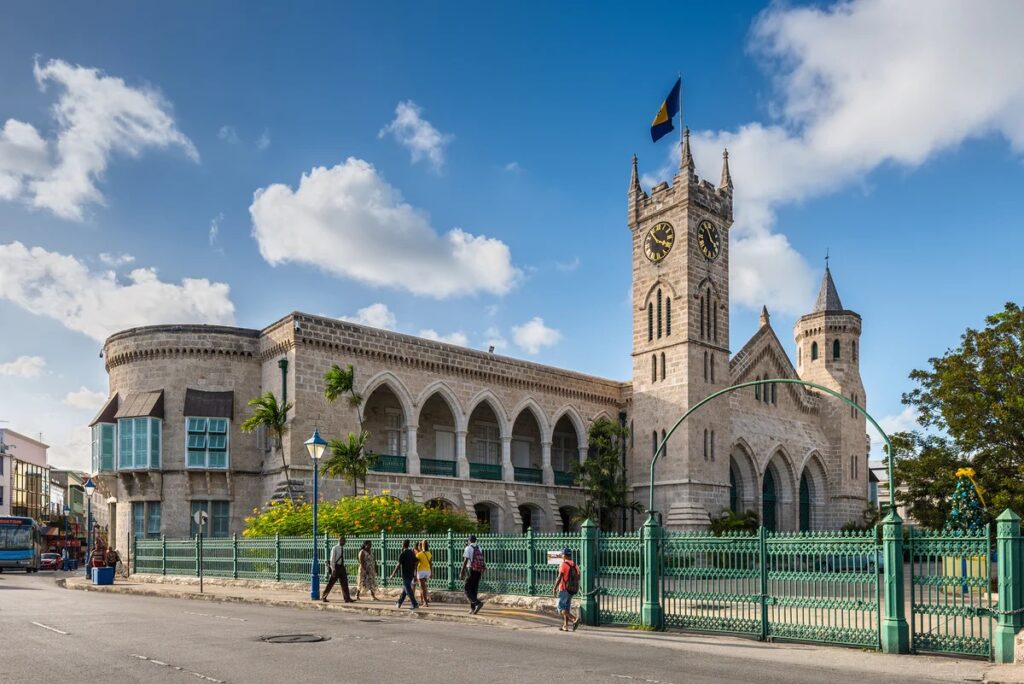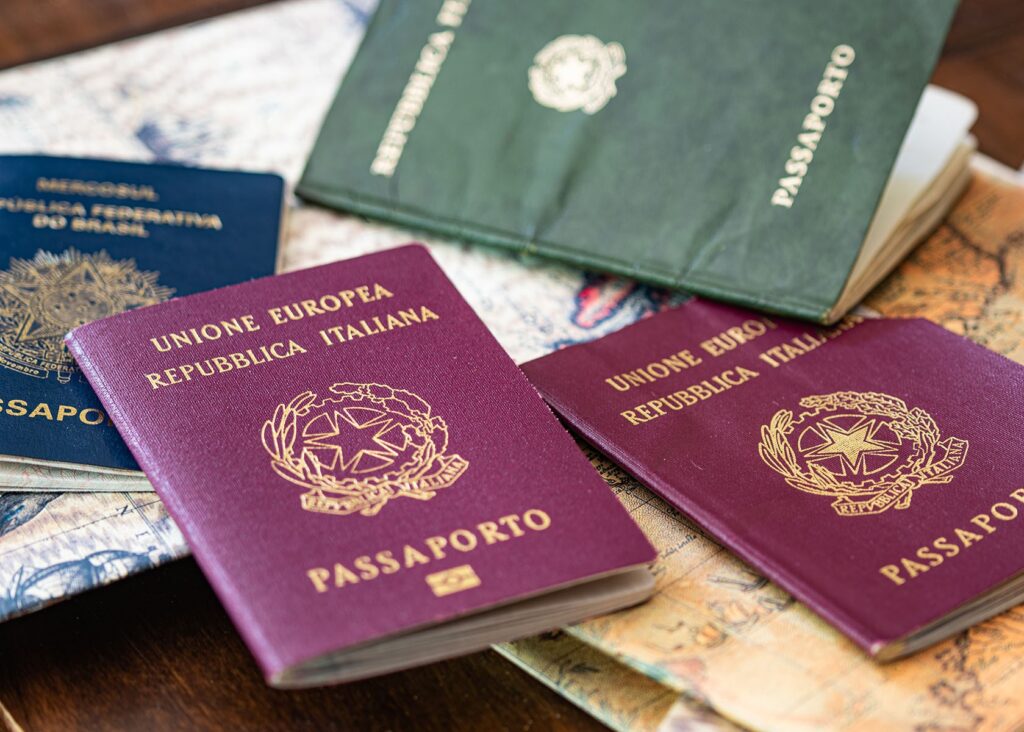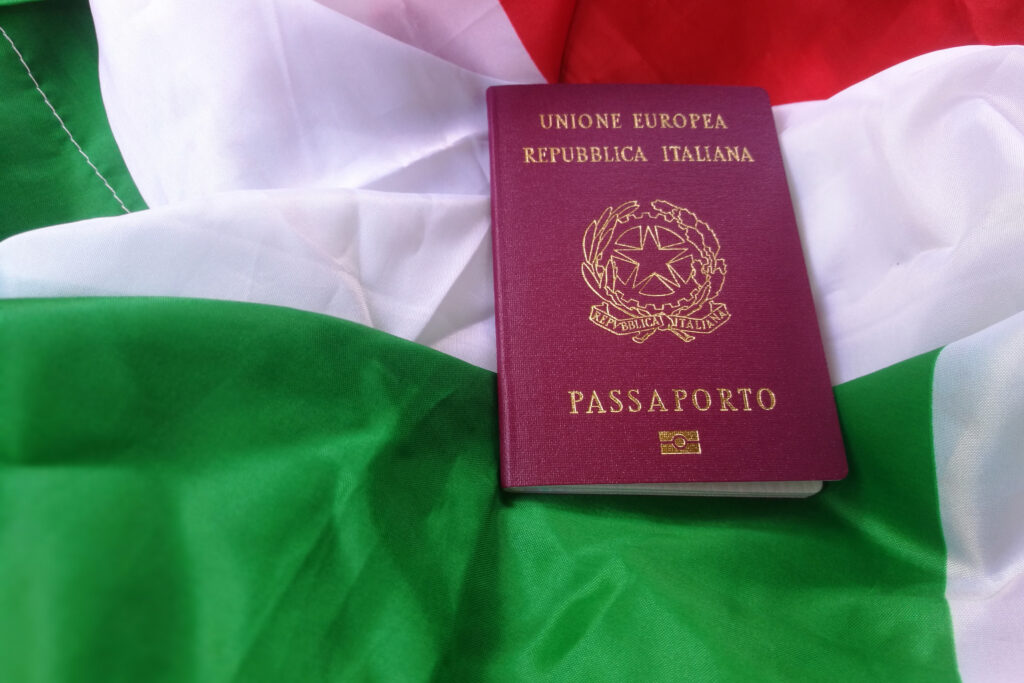If you’re considering a move to a tax-friendly haven, understanding the ins and outs of tax residency and the essential Certificate of Tax Residence (CTR) is your starting line. This crucial document not only streamlines your tax affairs but also positions you perfectly to enjoy the dual benefits of legal efficiency and serene living.
Obtaining a CTR is more than just ticking off a checklist; it’s your gateway to a world where you don’t pay taxes twice on the same income, thanks to double taxation agreements (DTAs). But why go anywhere when you can choose a locale that combines safety with beauty, ease with resilience? Imagine doing business where you can also bask in the surroundings that inspire and rejuvenate.
At Offshore Free, we understand that finding the perfect tax residence goes beyond the financial perks—it’s about crafting the lifestyle you’ve always dreamed of. Together, let’s explore the prerequisites and process for securing your CTR, with step-by-step guidance tailored to make this journey as smooth as possible. Say goodbye to bureaucratic headaches and hello to your new, picturesque tax home!
What is a Certificate of Tax Residence?

Definition
Navigating through the realm of taxation, you might come across the term “Certificate of Tax Residence” or CTR. This document is a formal proof issued by tax authorities, confirming an individual’s or a company’s tax residency in a specific country for a given fiscal year. Essentially, it’s your golden ticket to proving where you pay your taxes. The certificate plays a pivotal role when it involves international financial dealings, ensuring that you’re taxed appropriately and can take advantage of treaties against double taxation.
To explain further, if you live in one country but have financial interests or income sources from another, this certificate clarifies which nation has the right to tax your global income. It’s not just about stating where you live; it’s about linking you with the tax regime under which your incomes are scrutinised and taxed.
Importance
Understanding why a Certificate of Tax Residence holds such weight is crucial for anyone engaged in international business or those who find themselves globe-trotting yet earning across borders. Here’s why:
- Prevention of Double Taxation: Countries often have bilateral agreements to prevent their mutual residents from being taxed twice on the same income. If you qualify as a resident for tax purposes in two countries, this document helps claim relief under these double taxation avoidance agreements (DTAAs).
- Tax Rate Reductions: In many cases, showing that you’re officially recognized as a taxpayer in one jurisdiction can reduce withholding taxes on dividends, interest, and royalties earned abroad.
- Regulatory Compliance: For businesses operating globally, possessing Certificates of Tax Residence ensures compliance with local laws and international regulations. It demonstrates due diligence and aids in smoother cross-border transactions without facing unnecessary scrutiny or penalties.
Here are some examples where having a CTR proves beneficial:
| Scenario | Benefit |
|---|---|
| Receiving dividends from foreign investments | Lower withholding tax rates |
| Working remotely for an overseas employer | Avoidance of dual taxation |
| Operating businesses in multiple countries | Streamlined regulatory compliance |
In essence, whether you’re an individual exploring opportunities abroad or managing multinational operations, understanding and obtaining a Certificate of Tax Residence could save you significant money and hassle by effectively aligning with international tax norms.
Best Countries to Obtain a Certificate of Tax Residence
Exploring the globe for the best countries to secure a certificate of tax residence reveals a variety of options, each with its own set of benefits and considerations. This guide delves into some top destinations that are renowned for their favourable tax regimes and ease of obtaining tax residency.
United Arab Emirates

The United Arab Emirates (UAE) stands out as a prime destination for obtaining a certificate of tax residence, thanks to its zero income tax policy for individuals. This makes it an incredibly attractive option for entrepreneurs and investors looking to optimize their global tax positioning.
- Tax Benefits: In the UAE, foreign residents can benefit from no personal income taxes, making it highly lucrative.
- Procedure: Securing a certificate involves obtaining a residency visa first, which is straightforward if you’re investing in the country or setting up a business.
| United Arab Emirates Tax Profile | |
|---|---|
| Personal Income Tax | 0% |
| Corporate Tax Rate | 0% for most sectors* |
| Dividend Tax | 0% |
| Capital Gains Tax | 0% |
| Crypto Tax | No specific regulations |
| Residency Visa Process | Investment/Entrepreneurship required |
| Minimum Stay Requirement | 90 Days |
Dubai and Abu Dhabi are thriving business hubs and offer world-class infrastructure, combining lifestyle aspirations with fiscal efficiency perfectly suited for professionals aiming to blend upscale living with economic savvy.
Malaysia

Malaysia’s My Second Home (MM2H) program provides a compelling pathway to long-term residency and a subsequent certificate of tax residence. The country’s welcoming policy towards expatriates and its competitive cost of living make it a highly desirable location.
- Tax System: Malaysia employs a territorial tax system. Residents are taxed only on income earned within the country.
- Incentives: Participants in MM2H enjoy various incentives including long-stay visas extending up to 10 years.
| Malaysia Tax Profile | |
|---|---|
| Personal Income Tax | Progressive rates up to 30% |
| Corporate Tax Rate | 24% |
| Dividend Tax | 0% (Single-tier system) |
| Capital Gains Tax | 0% (except for real property gains) |
| Crypto Tax | No specific regulations |
| MM2H Program | Long-term visa for up to 10 years |
| Minimum Stay Requirement | 183 Days (some exceptions apply) |
This Southeast Asian nation is not just about financial perks; it’s also known for its rich culture, stunning landscapes, and vibrant cities like Kuala Lumpur.
Singapore

Singapore’s reputation as a financial hub extends into its favourable conditions for acquiring tax residency. Known for its robust economy and efficient bureaucracy, Singapore offers clear pathways to those seeking resident status for taxation purposes.
- Advantages: Competitive corporate tax rates and double taxation agreements with numerous countries stand out.
- Eligibility: Employment Pass holders or Permanent Residents can apply after proving substantial economic ties to Singapore – such as employment or business ownership.
| Singapore Tax Profile | |
|---|---|
| Personal Income Tax | Progressive rates up to 22% |
| Corporate Tax Rate | 17% |
| Dividend Tax | 0% |
| Capital Gains Tax | 0% |
| Crypto Tax | Subject to normal income tax rules |
| Residency Requirements | Employment Pass or Permanent Residence |
| Minimum Stay Requirement | 183 days in a calendar year |
With its strategic location in Asia, excellent connectivity, and high quality of life, Singapore remains popular among professionals and business owners alike.
Barbados

Barbados has emerged as an enticing destination for obtaining tax residency due to its Special Entry Permit program, designed specifically for high-net-worth individuals. In addition to enjoying the Caribbean lifestyle, residents can take advantage of Barbados’ network of double taxation treaties.
- Key Points: No minimum stay requirements make it flexible; however investment in property or local business is needed.
| Barbados Tax Profile | |
|---|---|
| Personal Income Tax | Progressive rates up to 33.5% |
| Corporate Tax Rate | 9% *lower for qualifying small businesses |
| Dividend Tax | 15% withholding tax |
| Capital Gains Tax | 0% |
| Crypto Tax | Currently unregulated |
| Special Entry Permit | For high-net-worth individuals |
| Minimum Stay Requirement | 183 Days (some exceptions apply) |
This island nation isn’t just about beaches; it’s also committed to creating an inviting environment for international investors through stable governance and appealing fiscal policies.
Panama
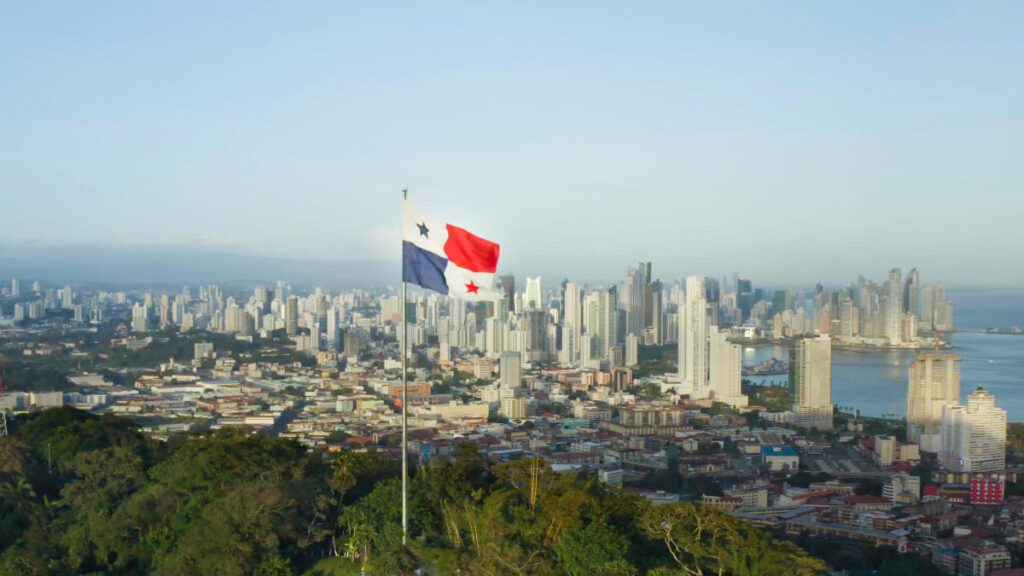
Panama offers one of the most interesting programs, which allows citizens from eligible countries easy access to permanent residency—and, eventually, a certificate of tax residence. Its territorial taxation system ensures that only income derived from within Panama is taxable.
- Distinctive Features:
- Ease of setting up offshore corporations
- No foreign income taxation
| Panama Tax Profile | |
|---|---|
| Personal Income Tax | Progressive rates up to 25% |
| Corporate Tax Rate | 25% |
| Dividend Tax | 10% |
| Capital Gains Tax | 10% (certain conditions apply) |
| Crypto Tax | No specific regulations |
| Friendly Nations Visa | Easy residency for eligible countries |
| Minimum Stay Requirement | 183 Days (some exceptions apply) |
Panama’s strategic location at the crossroads of the Americas, combined with its vibrant economy, presents both lifestyle and business opportunities unmatched by many other jurisdictions.
By considering factors such as individual circumstances, desired lifestyle, investment capacity among others—expatriates can identify which country best aligns with their objectives when seeking out certificates of tax residence. Each listed country offers unique attributes tailored towards fostering favorable conditions not just financially but also in terms satisfying broader life goals.
Fast Certificate of Tax Residence Options
Antigua and Barbuda – $20,000 Annual Tax Residency Program

Securing a certificate of tax residence in Antigua and Barbuda can be an appealing option for those looking to benefit from its favourable tax regime. This twin-island nation is renowned for its exquisite beaches and offering compelling tax advantages, such as no capital gains or estate taxes for residents. The process of obtaining a tax residency certificate here is designed to be straightforward, provided you meet certain criteria.
First off, it’s worth noting that this jurisdiction requires individuals to spend a minimum of 30 days within the country during the fiscal year to qualify for tax residency. Additionally, applicants must demonstrate substantial ties to Antigua and Barbuda, including owning property or having business activities in the country.
| Antigua and Barbuda Tax Profile | |
|---|---|
| Personal Income Tax | Up to 25% |
| Corporate Tax Rate | 25% |
| Dividend Tax | 0% for residents |
| Interest Tax | 0% for residents |
| Capital Gains Tax | None |
| Crypto Tax | No specific regulations |
| Residency Program | Investment via Citizenship by Investment Program |
| Minimum Stay Requirement | 30 Days (US $20,000 Annual Payment) |
The application process involves submitting various documents, including proof of identity, evidence of residence (such as utility bills or lease agreements), and details regarding your financial connections to the islands. Authorities aim to process applications swiftly, often within a few weeks, making it an attractive option for those needing quick certification.
Paraguay – Independent Means Visa
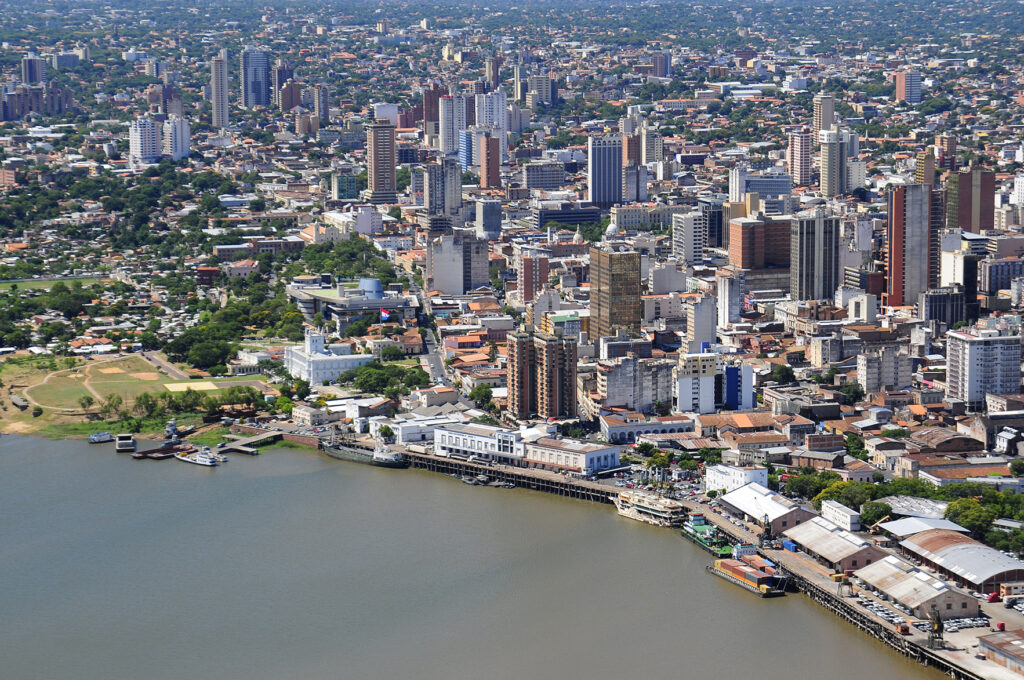
Paraguay offers another expedited path to acquiring a certificate of tax residence. Known for its low cost of living and minimal taxation requirements—for instance, personal income tax rates are incredibly competitive—Paraguay has emerged as a favourite among expatriates seeking efficient tax solutions.
To apply for tax residency in Paraguay, individuals must first obtain permanent residency—a process that can take several months but is regarded as one of the simpler systems globally. Following this step, applying for a certificate of tax residence typically involves presenting proof of local address (e.g., rental agreement), identification documents like your passport and ID card from your home country, and documentation proving economic activity or investment within Paraguay.
| Paraguay Tax Profile | |
|---|---|
| Personal Income Tax | 10% |
| Corporate Tax Rate | 10% |
| Dividend Tax | 5% to 15% |
| Interest Tax | 5% to 15% |
| Capital Gains Tax | None |
| Crypto Tax | No specific regulations |
| Residency Program | Permanent residency with simple requirements |
| Minimum Stay Requirement | 30 days per year to maintain residency |
What sets Paraguay apart is its relatively low physical presence requirement; residents need only stay in the country for 30 days per calendar year after receiving their permanent residency status to maintain their status. This flexibility makes maintaining both legal residency and fulfilling obligations toward obtaining a certificate quite manageable.
Anguilla – High Value Resident (HVR) Program

Anguilla stands out when discussing efficiency in securing certificates of tax residence due to its streamlined processes tailored specifically towards high-net-worth individuals seeking favourable taxation conditions without onerous requirements. As an overseas British territory known for zero income taxes on individuals or companies alike—plus no inheritance or gift taxes—Anguilla attracts global citizens looking for efficient ways to manage their wealth.
The key requirement here includes establishing a “substantial presence” on the island—which translates into physically residing there at least 45 days per annum over two consecutive years before applying. Unlike other jurisdictions where extensive paperwork might bog down applications, Anguilla emphasizes simplification; necessary documents generally encompass proof-of-identity papers alongside evidence substantiating your claims about physical presence and financial interests within Anguilla.
| Anguilla Tax Profile | |
|---|---|
| Personal Income Tax | None |
| Corporate Tax Rate | None |
| Dividend Tax | None |
| Interest Tax | None |
| Capital Gains Tax | None |
| Crypto Tax | No specific regulations |
| Residency Program | Residence by investment programs available |
| Minimum Stay Requirement | 45 days per year to maintain HVR program |
Remarkably swift processing times enhance Anguilla’s appeal further; once all requisite documentation has been submitted accurately, approvals can be expected promptly—usually within 30 to 90 days—a testament to the territory’s commitment towards facilitating ease of doing business and attracting international investors desiring prompt service without compromising regulatory standards.
How to Obtain a Certificate of Tax Residence

Minimum Stay Requirement
Securing a certificate of tax residence often begins with understanding the minimum stay requirement set forth by your country’s tax authority. This criterion stipulates how long you must live in a country to be considered a resident for tax purposes. Typically, this involves spending more than half the year—usually at least 183 days—in the jurisdiction during the calendar year or fiscal period in question.
For instance, if you aim to obtain this certificate in Singapore or Barbados, you must demonstrate that you’ve spent a significant portion of the tax year within its borders. The specifics can vary from jurisdiction to jurisdiction; thus, checking the exact requirements with your local tax authority is crucial.
Eligibility Criteria
Once you’ve established that you meet the minimum stay requirement, delving into other eligibility criteria is next on your agenda. These criteria are designed to ascertain not just physical presence but also your economic ties and intent regarding residency status. Common factors include:
- Location of permanent home: Whether owned or rented, having a permanent place of residence can play a pivotal role.
- Centre of economic interests: This looks at where your main income-generating activities are based.
- Social and family ties: Where close family members reside might influence your residency status.
Each factor paints a comprehensive picture of your ties to the country you’re seeking certification from.
Application Process
Embarking on the application process requires gathering detailed documentation and possibly completing specific forms provided by the national tax authority. The general steps usually involve:
- Completing an application form: Available through official websites or local tax offices.
- Compiling supporting documents: These may include proof of address, work contracts, and any other evidence demonstrating compliance with residency requirements.
- Submitting your application: Depending on the country, this could be done online, via mail, or in person at designated offices.
In countries like Canada or Australia, applicants may also need their taxpayer identification number (TIN) readily available when applying for such certificates.
Processing times can vary widely based on factors such as time of year and workload within the respective department handling these requests. Some countries offer expedited services for those needing their certificate urgently—for an additional fee.
Throughout each stage of obtaining a certificate of tax residence—from ensuring you meet initial stay requirements and verifying eligibility criteria through navigating complex application processes—it’s essential to arm yourself with accurate information directly from reliable sources such as national taxation authorities’ websites or official government publications. This proactive approach will not only streamline what might initially seem like an overwhelming procedure but could potentially save considerable time and effort, ensuring smooth sailing toward securing that all-important document certifying your tax residency status.
Investment Migration Programs for Tax Residency

Exploring the world of investment migration opens up many opportunities for individuals seeking tax residency in another country. This section delves into the intricacies of flat-tax programs, residence by investment programs, and citizenship by investment programs, providing you with a comprehensive understanding of each pathway.
Flat-Tax Programs
Flat-tax programs offer an attractive proposition for high-net-worth individuals looking to optimize their tax liabilities. These schemes allow residents to pay a fixed annual tax regardless of global income levels. Countries like Italy have pioneered this approach, offering new residents the chance to pay a yearly flat fee instead of the standard income tax on their global earnings.
Italy’s Flat Tax Program
Italy offers a flat-tax program that has been particularly attractive to high-net-worth individuals moving to the country. The program requires an annual payment of €100,000, regardless of the amount of worldwide income:
- Eligibility: New residents who have not been tax residents in Italy for 9 out of the last 10 years.
- Tax Rate: €100,000 on all foreign income annually.
- Additional Family Members: Family members can also benefit from a flat tax of €25,000 each per year.
- Duration: The option can be exercised for up to 15 years.
Greece’s Non-Dom Tax Program
Greece introduced a non-dom tax program aimed at attracting wealthy individuals to become tax residents:
- Eligibility: New residents have not been Greek tax residents for 7 out of 8 years.
- Tax Rate: A flat annual tax of €100,000 on worldwide income.
- Duration: Available for 15 years, possibly including family members for an additional flat rate.
Cyprus’s Non-Domicile (Non-Dom) Program
Cyprus offers a non-domicile status to new tax residents, exempting them from certain types of tax and capping income tax for high earners:
- Eligibility: Must become a tax resident of Cyprus and not have been a Cyprus tax resident for 17 out of the last 20 years.
- Tax Rate: No tax on worldwide dividend and interest income for 17 years.
- Additional Benefit: A cap on the tax payable on employment or business income generated in Cyprus for high earners.
Antigua and Barbuda’s Flat Tax Program
Antigua and Barbuda offer an appealing flat-tax program for individuals seeking to establish tax residency in a jurisdiction with a friendly tax regime:
- Eligibility: Open to individuals who become tax residents of Antigua and Barbuda and maintain a home in the country.
- Tax Rate: An annual flat tax of US$20,000 on worldwide income.
- Minimum Stay Requirement: To maintain tax residency status, you must spend a minimum of 30 days in the country each year.
- Additional Benefits: No capital gains tax, no inheritance tax, and no wealth tax.
This program is particularly attractive to high-net-worth individuals due to its straightforward and low-tax framework. Participants can enjoy the dual benefits of a vacation retreat and a favourable tax environment by spending just a month within the idyllic setting of Antigua and Barbuda.
Anguilla’s Tax Neutral Environment
Anguilla provides a tax-neutral environment, especially appealing to those seeking to manage their tax exposure:
- Tax Rate: For entities meeting certain conditions, there are no direct personal income taxes, capital gains taxes, gift taxes, sales or value-added taxes, or corporate taxes.
- Residency Program: Through investment in property or by establishing a business, individuals can obtain residency status.
Each of these flat-tax or tax-friendly programs requires specific conditions to be met and often includes various criteria such as proof of investment, real estate purchases, or business establishment within the country. These programs are designed to incentivize economic growth and attract foreign wealth by offering a more favourable tax regime to individuals who relocate or invest there.
Popular Residence by Investment Programs
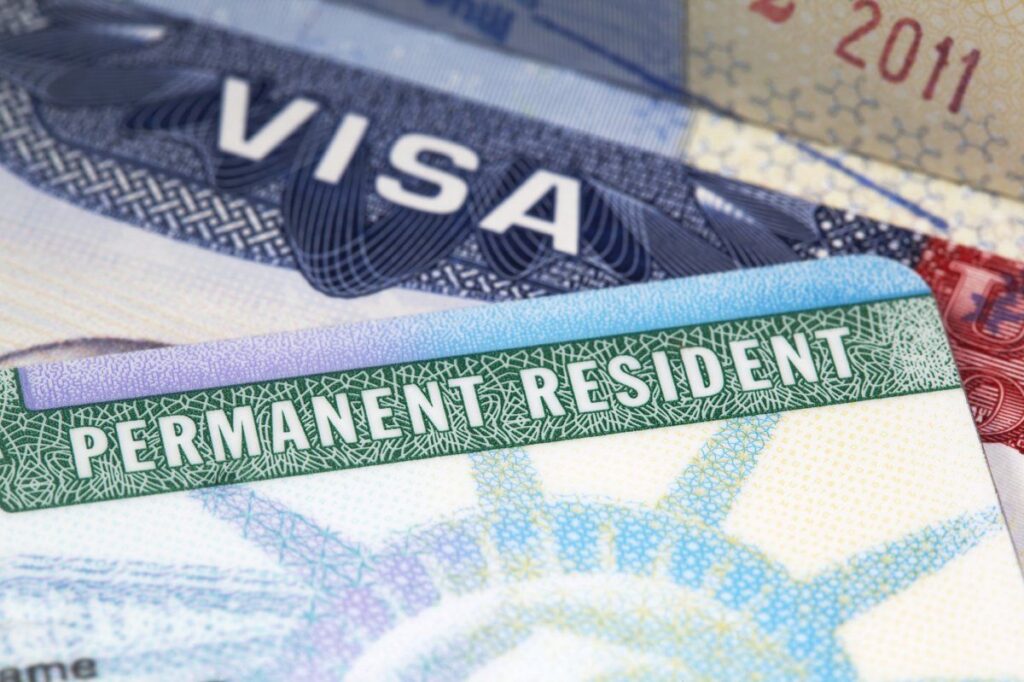
Residence by investment (RBI) programs are designed for those who wish to gain residency rights through substantial financial investments within a host country. These investments often come in real estate purchases, government bonds, or contributions to national development funds.
Portugal’s Golden Visa
This program has become one of the most popular due to its straightforward requirements and the benefits offered. By investing a minimum of €280,000 in real estate, particularly in low-density areas or higher amounts in urban areas, investors can obtain residency rights. This can lead to permanent residency after five years and citizenship after six, provided they meet the residency requirements and pass a basic language test.
Greece’s Golden Visa
The Greek program allows for a relatively low entry point of €250,000 investment in real estate, offering residency rights to the investor and their family. The Greek visa is particularly attractive due to its no minimum stay requirement and access to a high-quality Mediterranean lifestyle.
Italy’s Investor Visa
Italy’s investor visa requires a minimum investment of €250,000 in an innovative startup or €500,000 in an Italian company. Alternatively, applicants can donate €1 million to a public project. While the cost of entry is higher, the Italian visa grants access to one of Europe’s richest cultural and historical environments.
Malaysia’s My Second Home (MM2H)
The MM2H program allows for a long-term stay in Malaysia with a minimum investment in local real estate or by showing liquid assets and a steady income stream. Malaysia offers an excellent balance between modernity and cultural richness, coupled with a lower cost of living than many Western countries.
The Bahamas’ Residency Program
One can gain permanent residency in The Bahamas by investing a minimum of $500,000 in real estate. This Caribbean paradise offers a favourable tax regime, a high standard of living, and natural beauty.
Such initiatives not only grant investors and their families the right to live in these countries but also pave the way towards acquiring permanent residency or citizenship, subject to certain conditions, such as duration of stay and language proficiency tests.
Popular Citizenship by Investment Programs
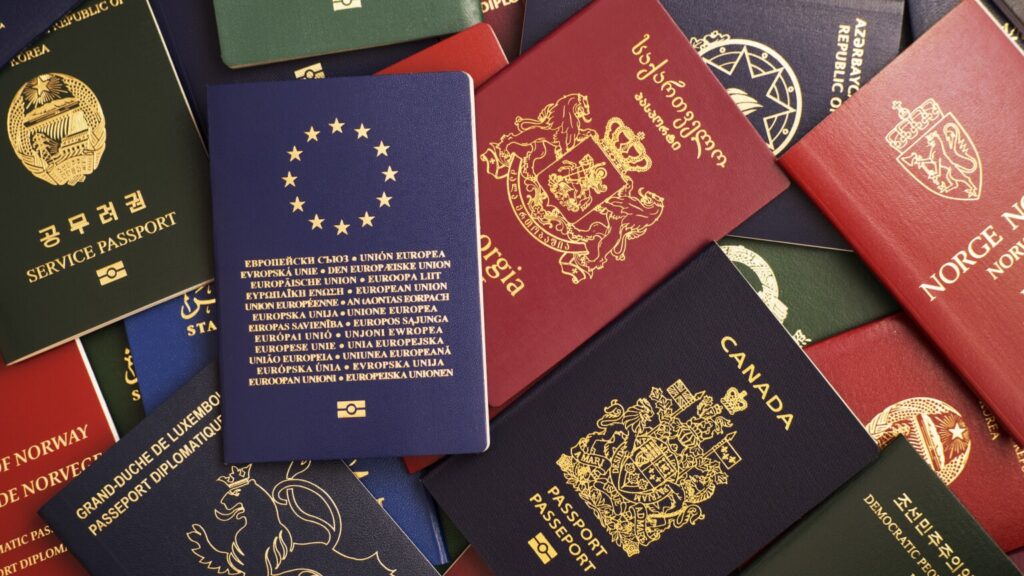
For those aiming directly at obtaining an alternative nationality alongside its associated benefits, including visa-free travel, citizenship by investment (CBI) programs serve as a direct route. These schemes involve making significant economic contributions like donating to national funds or investing in approved business ventures.
Malta’s Individual Investor Programme (IIP)
Malta’s IIP requires a combination of donations, investments, and real estate purchases totalling over €1 million. Successful applicants gain citizenship in a nation part of the European Union, offering extensive travel rights and business opportunities across the EU.
Antigua and Barbuda’s Citizenship Program
With an investment starting at $100,000 into the National Development Fund or real estate investments starting at $400,000, investors can gain citizenship in a country with visa-free access to over 150 countries, including the UK and Schengen Area.
Grenada’s Citizenship Program
Grenada’s program stands out due to its allowance for citizenship by investment in approved real estate with a minimum value of $220,000, which the investors can sell after a few years. Moreover, Grenadian citizenship allows for visa-free travel to China and is one of the few that offers the possibility of an E-2 investor visa to the United States.
St. Lucia’s Citizenship Program
Investors can gain citizenship in St. Lucia by donating at least $100,000 to the National Economic Fund or investing in higher amounts of real estate or government bonds. St. Lucia offers one of the most scenic locations in the Caribbean and a growing economic environment.
St. Kitts and Nevis’ Citizenship Program
This long-established program requires a donation of $150,000 to the Sustainable Growth Fund or a real estate investment of $200,000. St. Kitts and Nevis is known for processing applications quickly, often within a few months, making it a popular choice for those seeking expedited citizenship.
These passports can be incredibly valuable for businesspersons looking to expand globally or individuals seeking increased mobility. However, it’s essential to conduct thorough due diligence, as regulations around CBI can frequently change, impacting both eligibility criteria and benefits offered.
Investment migration offers unique opportunities but comes with its complexities. Whether opting for flat-tax regimes, securing residency through substantial investments or acquiring new citizenship, each path has distinct advantages tailored towards specific needs and goals. As regulations evolve it’s crucial staying informed is key ensuring your decisions align perfectly with your long-term objectives regarding lifestyle improvement financial planning or enhanced global mobility.
Benefits of Having a Certificate of Tax Residence

Navigating the complex world of taxes becomes significantly smoother when equipped with a Certificate of Tax Residence. This crucial document serves as your fiscal passport, offering numerous advantages that can alleviate the administrative and financial burdens often associated with international dealings.
Avoidance of Double Taxation
One of the most compelling reasons to secure this certificate lies in its power to prevent double taxation. Imagine earning abroad and then being taxed both in the country of income and your home country. It’s not just daunting; it’s financially draining.
- What happens without it? Without this certificate, individuals and businesses alike can find themselves caught in a taxing bind—pun intended—paying more than their fair share to two different tax authorities.
- How does it help? The certificate proves that you are paying taxes in one jurisdiction, thereby exempting you from certain taxes in another under double taxation agreements (DTAs). These agreements are forged between countries to ensure taxpayers aren’t unduly penalized by overlapping tax laws.
Countries worldwide have inked DTAs, covering various income types such as employment, property gains, and business profits. With a Certificate of Tax Residence, you’re better positioned to benefit from these treaties.
Proof of Tax Residency
Beyond shielding you from double taxation, this certificate establishes your status as a tax resident within a particular jurisdiction.
- Why is this important? Your tax residency dictates which government has the right to tax your global income. For digital nomads or those splitting their time across borders for work or personal reasons, proving where you owe your fiscal allegiance can become nuanced.
Holding this document simplifies interactions with tax authorities by providing clear-cut evidence of your residency status for tax purposes. Whether opening bank accounts overseas or dealing with cross-border investments, presenting this certificate streamlines processes that otherwise could be mired in red tape.
Ease of Conducting Business Abroad
For entrepreneurs eyeing markets beyond their domestic shores, having a Certificate of Tax Residence is akin to holding an all-access pass.
- Facilitating cross-border transactions: This document reassures foreign partners and financial institutions about the legitimacy and fiscal domicile of your operations. It’s particularly crucial for startups looking to attract investment or open foreign bank accounts.
- Reducing withholding taxes: Many countries impose withholding taxes on payments made to foreigners for services rendered within their territory. Armed with this certificate, businesses can often negotiate reduced rates under applicable DTAs.
In essence, possessing a Certificate of Tax Residence not only safeguards against undue taxation but also cements your standing in international trade circles. Whether you’re an individual navigating global employment opportunities or a corporation expanding its footprint overseas, securing this documentation should be high on your priority list for seamless financial manoeuvrability.
Conclusion
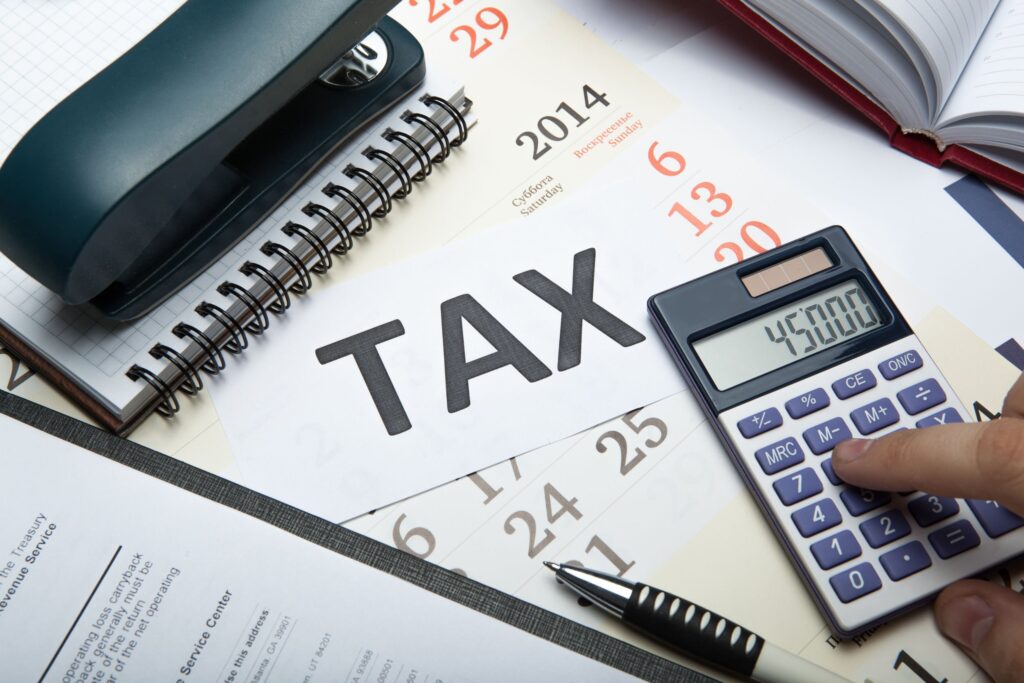
This is the conclusion. You’ve journeyed through the complexities and essentials of obtaining a certificate of tax residence. Understanding its significance in avoiding double taxation and fulfilling your tax obligations cannot be overstated. Individuals and businesses with cross-border activities must familiarise themselves with the process involved in acquiring this certificate.
Securing a certificate of tax residence marks a pivotal step towards efficient tax planning and compliance on an international scale. Here are key takeaways:
- It serves as proof of your tax residency status in a particular country.
- Essential for claiming benefits under double taxation agreements (DTAs).
- The application process varies by country, demanding attention to detail.
- Timely acquisition can lead to substantial financial savings.
Remember, while the procedure might seem daunting initially, it’s fundamentally about ensuring you’re taxed fairly and legally according to international standards. If you’re uncertain about any part of the process, seeking advice from a tax professional is highly recommended.
Armed with this knowledge, you’re now better positioned to navigate the intricacies of international taxation confidently. Whether you’re an individual or managing business operations across borders, understanding the role and importance of the certificate of tax residence is indispensable for sound financial management.
Embrace this information as your guide toward achieving optimal compliance with global tax regulations while safeguarding against unnecessary taxation burdens. Your proactive steps today will pave the way for more streamlined and cost-effective financial operations tomorrow.
Frequently Asked Questions (FAQ)
1. What is a Certificate of Tax Residence (CTR)?
A CTR is a document issued by tax authorities that certifies an individual or a business entity is a tax resident in a particular country for a given fiscal year. It is a crucial tool for proving your tax residency and is often required to apply for benefits under double taxation agreements (DTAs).
2. Why is having a CTR important?
Having a CTR is important because it helps prevent being taxed twice on the same income—once in the country where the income is earned and again in the country of tax residency. It also simplifies regulatory compliance and financial transactions across borders.
3. How do I qualify for a CTR?
To qualify for a CTR, you typically need to meet the tax residency requirements of the issuing country, which often include a minimum stay requirement and proof of economic ties, such as employment or business operations within the country.
4. What are the benefits of obtaining tax residency in a country with a favorable tax regime?
Obtaining tax residency in a country with a favorable tax regime can lead to significant tax savings, especially if the country has a low or zero tax rate on personal income, dividends, capital gains, and potentially, crypto assets.
5. How can a Certificate of Tax Residence improve my business operations abroad?
A CTR can streamline cross-border business operations by reducing withholding taxes on payments such as dividends, interest, and royalties, thus potentially enhancing the financial efficiency of your business.
6. Are there any minimum stay requirements to maintain tax residency status?
Yes, most countries have minimum stay requirements to maintain tax residency status. This can range from spending a certain number of days in the country to demonstrating a substantial presence over a period of time.
7. What are residency by investment programs?
Residency by investment programs allow individuals to gain residency rights in a country through significant financial investments, such as purchasing real estate or investing in government bonds.
8. What is the difference between residency by investment and citizenship by investment programs?
Residency by investment programs grants the right to live in the host country and potentially leads to permanent residency and citizenship. In contrast, citizenship by investment programs offers a direct route to a second passport and nationality without long-term residency requirements.
9. Can I include my family in the residency or citizenship by investment programs?
Yes, most residency and citizenship by investment programs allow for the inclusion of immediate family members, often with additional investment requirements.
10. How do flat-tax programs work?
Flat-tax programs are designed to cap your annual tax liabilities at a fixed amount, regardless of how much global income you earn. These programs are popular among high-net-worth individuals seeking tax predictability and simplicity.
Learn More
Offshore Freedom™ is a boutique coaching and consulting firm that helps investors and entrepreneurs live and invest internationally. We help our clients grow their businesses, pay less taxes, buy more real estate, and take advantage of global residency and citizenship by investment programs worldwide.
Schedule a 1 on 1 consultation with Dan Merriam, and let us help you design the life of your dreams and live the Offshore Freedom™ lifestyle. Ask questions and get answers about international real estate, tax planning, offshore banking, second residencies, citizenship by investment, lifestyle design and more.
This article is for informational purposes only; it should not be considered financial, tax planning, investment or legal advice. Consult a certified financial or investment professional in your jurisdiction of interest before making any major financial or investment decisions.
Writer in Tax Reduction, International Tax Planning, Travel, Citizenship by Investment, Second Residence, Real Estate Investing, Best Countries to Invest in Real Estate, Asset Management, Lifestyle Planning, Countries with the Lowest Taxes, Company Formation, Offshore Banking, Asset Protection, Technology, Entrepreneurship



